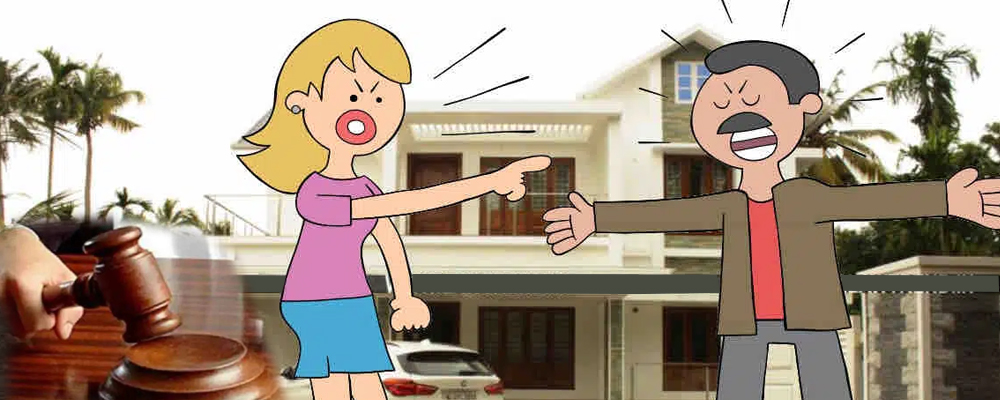Delhi High Court said the wife is entitled to maintenance from the estranged husband even though she lives in the same house.
Earlier this year, while granting the petition of a woman for interim maintenance, the Delhi High Court held that a wife is entitled to maintenance from her estranged husband even though she lives in the same residence.
It is a well-known fact that the man must maintain his wife, children as well as parents who are unable to maintain themselves under section 125 of the Criminal Procedure Code. Interim maintenance is often granted to the petitioner when the proceeding is pending the court and the court is yet to reach the final verdict.
Let us reflect on the High Court’s decision of granting maintenance in the light of the given case where the trial court denied the interim maintenance to the woman as it was presumed by the Trial Court that the man was maintaining the wife as she was living in the same house.
Trial Court’s Order
Under section 12 of the Protection of Women from Domestic Violence Act, a complaint was filed by the woman alleging torture by her husband. The husband denied all the allegations made by the woman in the Trial Court. The Trial Court based on the findings ruled that the woman is not entitled to interim maintenance and noted that she had both bachelor’s and master’s degrees which makes her capable of earning and taking care of herself.
On record, it was found that the order of the trial court came when the woman was living in the matrimonial house with no obligation to rent or electricity and water bills. However, this does not disentitle the wife from receiving the minimum amount from her husband for basic needs, toiletries groceries, clothing, etc.
Need A Legal Advice
The internet is not a lawyer and neither are you. Talk to a real lawyer about your legal issue

The Trial Court presumed that as the husband is bearing the expenses of his children, it can be also presumed that he must be maintaining his wife. As mentioned earlier, the educational degrees obtained by the woman years ago do not disentitle her from receiving maintenance. The order by the Trial Court with the contentions put forwards was appealed by the woman.
Now, let us contemplate the decision and order of the Delhi High Court and analyze how the woman is justified in claiming the maintenance.
Order of Delhi High Court
After the plea for seeking interim maintenance from her estranged husband was dismissed by the trial court, the woman approached Delhi Court.
It was observed by the Delhi Court while allowing the appeal of the woman to receive maintenance from her estranged husband even though she lives in the same house, that often in Indian society no matter how educated a woman may be, is not allowed to take up a regular job due as she needs to look after her husband and children.
The Additional Sessions Judge Monika Saroha said that a victim of domestic violence residing in the same house and deprived of basic necessities is a common scenario in an Indian household.
The Sessions Court impugning the order of the trial court held that it was wrong of the trial court to conclude that the woman is not entitled to receive any maintenance merely because she was residing in her matrimonial house. She had no obligation to pay rent, electricity bills, etc. The court while passing an order in favour of granting the maintenance noted that the allegation of domestic violence in her complaint was specific and an FIR had been registered. Thus, this corroborates the complaint made by the appellant.
Further, the Court also states that a middle-aged woman and a mother of three children accusing her husband and in-laws of domestic violence cannot be denied maintenance on the ground that she has had a bachelor’s and master’s degree years ago.
The trial court’s decision and order on these matters were held to be incorrect and thus the order was impugned and the woman was granted interim maintenance.
Conclusion
The law is settled on the fact that earning capacity I different from the actual earnings and both cannot be taken an equal stance. It was erroneous of the trial court to state that as the woman was residing in her matrimonial home while the order was passed, she is not entitled to receive maintenance because she had no obligations to pay rent. The Sessions Court observation and findings while dismissing the order of the trial court are highly appreciable because no presumptions should be made in these cases that the husband maintaining the children must also be maintaining the wife.
Reach out to us if you want to experience a stress-free experience while dealing with matters of maintenance and several marriage-related issues. We have an extensive team of advocates highly experienced in dealing with such matters and will smoothly sail through your issues.





 Talk to a Lawyer
Talk to a Lawyer